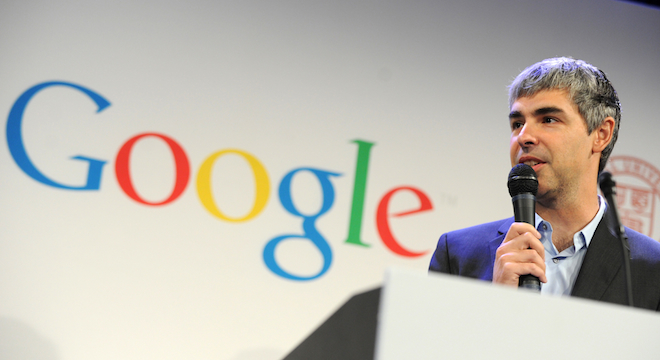Google dodged a potentially massive, messy antitrust case on Thursday when the U.S. Federal Trade Commissioned announced it was ending its two broad, multi-year investigations into major parts of Google’s business, search and mobile devices.
The FTC concluded after a 19-month review involving over nine million pages of documents that Google did not commit “search bias” against competitors and closed that part of its investigation without pressing antitrust claims or pursuing further action.
“The Commission exhaustively investigated accusations that Google unfairly manipulated search results to harm competitors, a practice that most of us refer to as search bias,” said outgoing FTC Chairman Jon Leibowitz in a press conference Thursday afternoon. “Today the Commission has voted to close this investigation unanimously.”
But Leibowitz said (PDF) the FTC found Google did engage in “unfair conduct” by continuing to sue competitors over patents on mobile device technology that Google acquired along with the company Motorola (in May 2012).
Google and the FTC on Thursday announced they agreed to a settlement (PDF) in which Google has been ordered to allow its competitors in the mobile device market — including Apple — to attempt to license the Google Motorola mobile device patents considered “standards essential,” that is, necessary for basic mobile functions, for fair, reasonable and non-discriminatory (FRAND) terms.
In essence, Google can charge its competitors hefty fees for using the most important Motorola patents, but should not seek to block its competitors’ allegedly infringing products from being sold.
If Google violates any of the myriad parts of its consent order with the FTC regarding Motorola patents, the FTC can fine the Internet giant up to $16,000 a day for as long as the violation occurs. Any such fine would be pittance to Google though, which made $14 billion in its third quarter of 2012 alone.
Also, though the FTC celebrated its patent consent order with Google as a win for consumers and the industry, Google is actually still allowed under the terms of the settlement to continue suing competitors it accuses of infringing on those Motorola patents, including Apple. Google can also seek to block competitors’ products in some narrow cases, such as if a competitor seeks to block Google products from being sold. The full list of narrow cases where Google can still resort to seeking injunctions or exceptions to competitors’ products can be found in the FTC’s analysis document (PDF), also published Thursday.
Not surprisingly, Google openly celebrated the move, with Google chief legal officer David Drummond publishing a post on its Public Policy blog writing that “[t]he conclusion is clear: Google’s services are good for users and good for competition.”
By the same token, Google sought to show its compliance with the government, noting that it is voluntarily undertaking changes to its search and AdWords products. Google outlined these changes in a public letter (PDF) sent to the FTC, describing how, within 90 days, it will allow website owners to “opt-out” of having their content scraped and displayed on Google’s aggregator products including Google Shopping, Google Plus Local, Google Flights, Google Hotels, and Google Advisor.
As Google explained this change in its letter to the FTC: “When a website owner exercises this option, Google will cease displaying crawled content from the domain name designated by the website owner on Covered Websites on the google.com domain the United States,” — meaning that such content could still be displayed to Google users abroad.
Google also committed on Thursday to increasing the flexibility of its AdWords application programming interface (API), the set of codes that allow advertisers and their affiliates to build apps that integrate with Google’s online advertising service. Within 60 days, Google said it will make changes allowing advertisers to copy ad campaign data obtained through the API and integrate it with other third-party online ad managing services and software. The FTC had said that it was “concerned” Google’s prior terms on its AdWords API were too restrictive.
Although Google’s proposed changes in search and AdWords are voluntary, lawyers with the FTC told TPM that the FTC still considered these changes to be legally binding, and that as a consequence, if Google violated them, the FTC could sue Google or open a new investigation at any time.
The FTC “did not decide to close the full investigation without Google’s voluntary commitments. The investigation was closed pursuant to Google’s voluntary commitments,” a lawyer for the agency told TPM.






